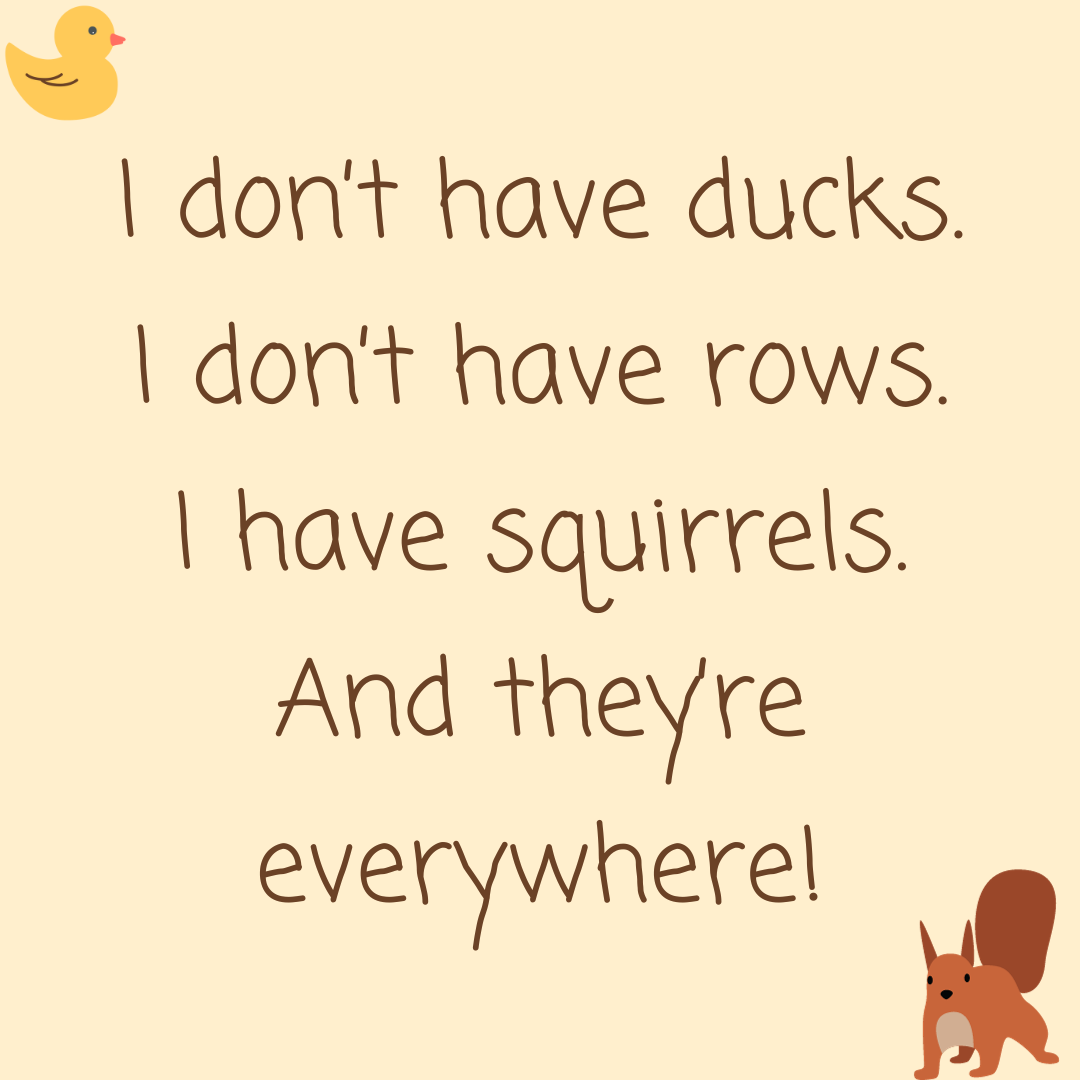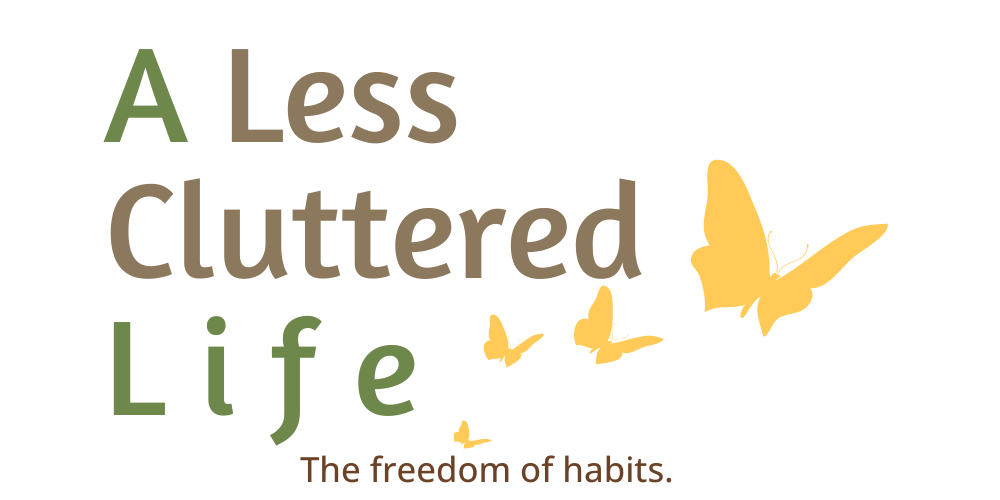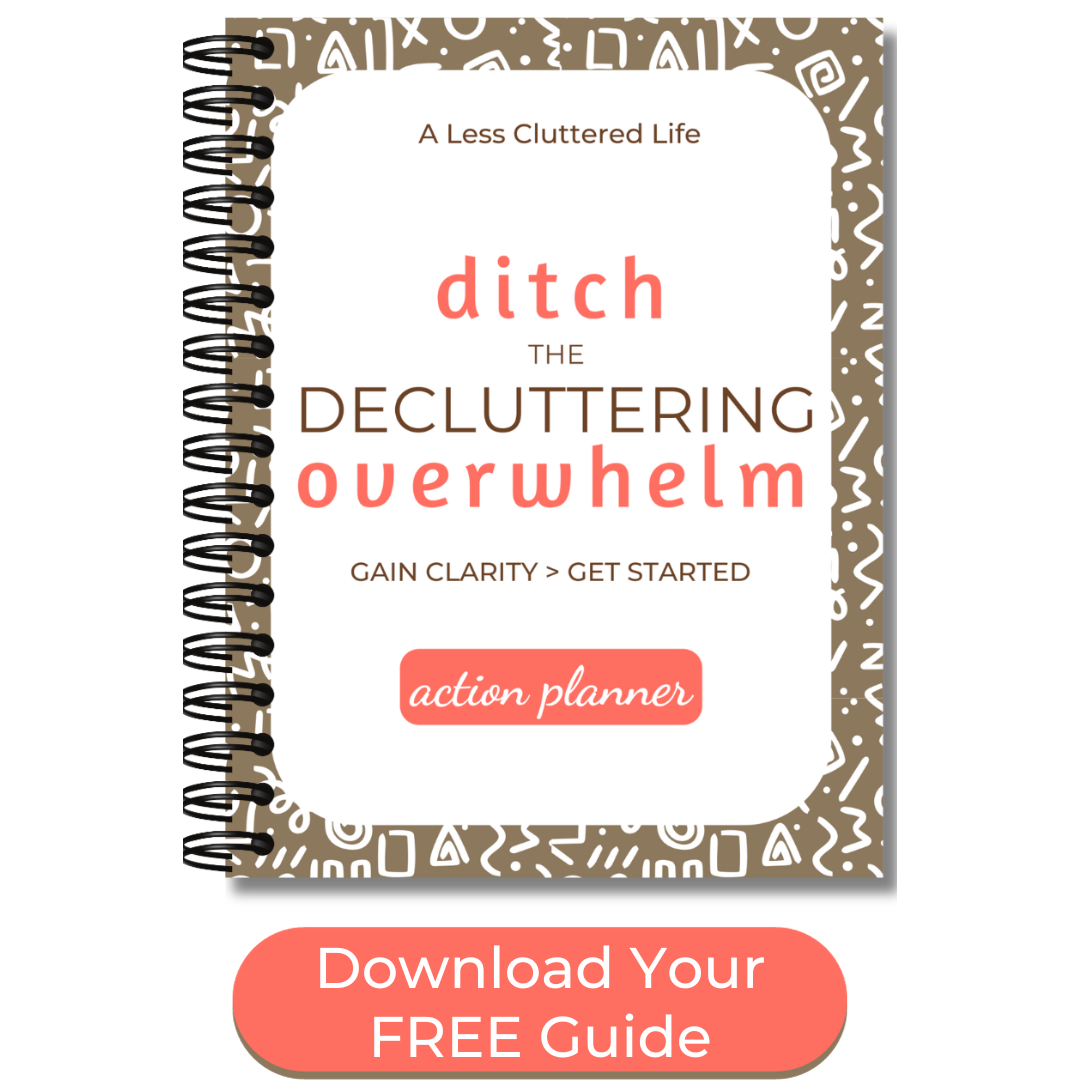|
by Susan McCarthy While decluttering can feel overwhelming, you can take simple actions that can help you feel in control – like doing less work, finding a decluttering guru, focusing on what you use and love, and saying no to ‘just in case’ items. You thought you were decluttering the right way. You followed the directions and pulled everything out of your closet, dumping everything on your bed. Then you started going through things one item at a time, thinking about the last time you wore it and if you’d wear it away. Item. After. Item. Your energy flags, so you get something to eat. Your attention starts to drift and suddenly you’re putting more and more garments into a ‘maybe’ pile. Then you realize that you’re running out of time. How did it become evening? Why is this taking so long? Why didn’t you have the habit of decluttering your closet every year, so things never got this way? Overwhelm kicks in and you find yourself putting most of your clothing back in the closet while muttering all sorts of nasty things about yourself. You’re DONE. DONE. Just done. Not the most motivating decluttering session, was it? With that type of stress, why would you want to do it again the next day or the next week? But you can fend off overwhelm by using one or a few of the techniques described below. Read the scenarios and see where you fit in so as to find the solution that will be most helpful. You Have Too Much StuffI know you read that heading and rolled your eyes. Isn’t the reason that people declutter is because they have too much stuff? But ‘too’ much is relative. Years ago, I was convinced that I should hold onto every book I bought…and that I could never own too many books. Nowadays, I hold onto physical copies of my favorite books, those that I reread every year or three. Even now, I have books that don’t fit my reread or refer to qualifications and I plan to weed out a few more. Once upon a time, hundreds of books felt just right; today, a few dozen feel like too much. This is why the things that didn’t bother you yesterday feel overwhelming today. Maybe a family member or friend was talking about decluttering. Or you read an article in a magazine or online…or saw something on television. Some bit of information that floated around you in the past suddenly clicks in your mind. You realize, “Hmm, I don’t need to hold onto this stuff. Or that stuff. Or…LOOK AT ALL THIS STUFF I DON’T NEED!” And then overwhelm kicks in because you realize you have xx-number of years of stuff that didn’t bother you yesterday and you’re wondering – “How did this not bother me? How did I not see this?” Solution – Be kind to yourself. All these things are connected to people, activities, events, and aspirations that filled your life. This doesn’t mean you hold onto all of this. It means you acknowledge, “I did this. I wanted to try that.” And then you see what your life is. Focus on the things that you want to keep. It can be easier to see what isn’t as important to you when you start with what is. When you declutter from the “I need to get rid of stuff” perspective, you can trigger feelings of deprivation and stress. You can end up in a struggle – “None of these things seemed important until I tried to get rid of them. Then I thought I should hold onto them ‘just in case’ I needed them someday.” Instead, focus on the stuff you love and use. You Try to Do Too Much at OnceTraditional decluttering advice recommends emptying out the space you want to declutter so you can see everything you have. (Oh, and if there’s more someplace else in the house, go get it and add it to the pile.) The problem is that now you have all this stuff spread out over the floor or over the furniture and you don’t know where to start. (It’s amazing, you don’t realize how much stuff you have fit into a drawer until you take it out of that drawer and spread it over the bed or a tabletop. You start the project thinking that you’ll have the time, energy, and attention to go through everything. But the technique that shows you just how much stuff you own has shown you just how much stuff you own. And you have to handle each and every one of these things. Oh, and make a decision about each one. And there’s the pressure of working quickly because now this stuff is everywhere and it’s in the way. Hmm, no wonder you feel overwhelmed. Solution: Work on a Little Space – a shelf, a drawer, or a quarter of a tabletop covered in stuff. Only pull out that stuff, make your decisions what to do with it, and return what you want to keep. If you have time, move onto the next shelf or drawer and then the next. The area you want to declutter still gets done, but you stay in control of how much you have to deal with at any one point. You Think You Should Hold onto Stuff ‘Just in Case’Maybe you haven’t seen this thing for five or more years, but the moment your eyes land on it you think how useful it could be…someday. Getting rid of these types of things can be fraught with stress. These are the things that people always joke about, never needing until the moment they get rid of it. Has this ever happened to you? What was the thing that you got rid of? And was it really that important? The Minimalists introduced what they call the 20/20 Rule – could you replace an item in twenty minutes or for less than twenty dollars? Then chances are it isn’t all that important (particularly if you can’t remember the last time you used it and can’t name the next time that you’ll use it). Useful isn’t the same thing as used. Another way of thinking about this is – what else could you use if you didn’t have this item? Could you rent or borrow it? Would you rather have the space in your home or these items that you may end up cleaning or rearranging or buying storage containers for while you hope it proves its use? Solution – Use the 20/20 Rule. Consider what you would do if you didn’t have this item. Would you buy this if you didn’t know how or when you were going to use it? You Never Learned How to DeclutterMaybe your parents were like mine and they held onto everything. You learned that this habit was like a rule you had to follow – or else. Or perhaps your parents were so organized that they found it easier to declutter and organize stuff for you. And maybe this made you cling to stuff because you used to hate having your possessions disappear on someone else’s whim. Or you know what organized looks like, but you have no clue how things get that way. Can you list 10 things that you think an organized person does that you don’t do? Is there someone you know who is organized and that you could ask how they stay organized? Can you select one habit to develop – perhaps cleaning up what you were using (yes, it’s the ‘put away what you were playing with before you pull out more toys’ rule that you may have been told to follow as a kid – both of my parents probably had hoarding disorder and they still insisted on this rule). Solution – Depending upon how you like learning – read directions or watch a video – there’s lots of resources available to you. However, you don’t have to jump on the bandwagon of the first book or video you encounter. If you have young kids, you may want to follow the videos of a content creator with young kids. On the other hand, if you’re retired and live alone, you may want to find someone like you. Or simply find someone who you’d like to hang out and chat with even if they have 12 kids and live in a huge farmhouse while you live in a one-bedroom apartment with a cat. Instead of trying to mesh the organizing philosophies of a dozen different people, pick one person and stick with their books, blogposts, or videos. And allow your own intuition to guide you. Learning new habits isn’t easy. You’re rewiring the way you think. Focus on one habit until it becomes automatic and then move onto another habit. If you continue to struggle in your attempt to build new habits, look for a smaller, simpler habit (say, hanging up your coat, putting your keys in the same place each time you enter the house, tossing junk mail immediately). You Get Stuck While Trying to Make DecisionsOne of the reasons you may be holding onto things ‘just in case someone needs them someday’ could be because you struggle making decisions. You’re caught up in a bunch of rules that you learned from your parents, teachers, friends, coworkers, and the media. Things worked out when you followed these rules…and you gained approval from the people you acquired them from (probably unconsciously). And so, you’ve never questioned if it would be okay to pass along gifts you never cared about, toss old bank statements, or get rid of clothing that doesn’t fit (because you don’t know, someday it might) because what you were doing seemed to work. But now that you’re looking at things differently, you need different rules…and you need to break the ones that you have that are no longer working for you. But first – you need to catch yourself thinking about these rules. Catching these thoughts can be tricky, but one way to notice them while you’re decluttering is to stop yourself when you find that you’re putting something back where you found it ‘just in case’ you or someone else needs it someday. Another clue that you’re thinking unhelpful rules – you decide to box something and put it into storage – whether that’s your basement, a shed, or off-site storage. Pause and question how and when you see yourself using these items. Solution – Another technique to try is to imagine what you’d say to a friend if you were sitting beside them as they were decluttering these very items. If your friend said, “You know, I should just hold onto this because, well, because” what would you say to them? It’s amazing how our thinking is always clearer when it comes to offering others advice about their situation than it is to mull through our own issues. Make Decluttering Less OverwhelmingIf decluttering feels overwhelming, you are not alone! Remember, starting today brings you one step closer to achieving a peaceful and organized home. To limit some of the stress –
0 Comments
Your comment will be posted after it is approved.
Leave a Reply. |
Categories
All
Hi, I'm SusanI'm a former teacher who became a professional organizer (and not because I'm a natural-born neatnik). I live with my husband and fluffy cat on a river in Massachusetts. I crochet, make handmade cards, and love reading young adult novels. Learn more about my decluttering journey here. |
|
Copyright 2024 Susan McCarthy - Susan@ALessClutteredLife.com -
Privacy Policies |
Proudly powered by Weebly

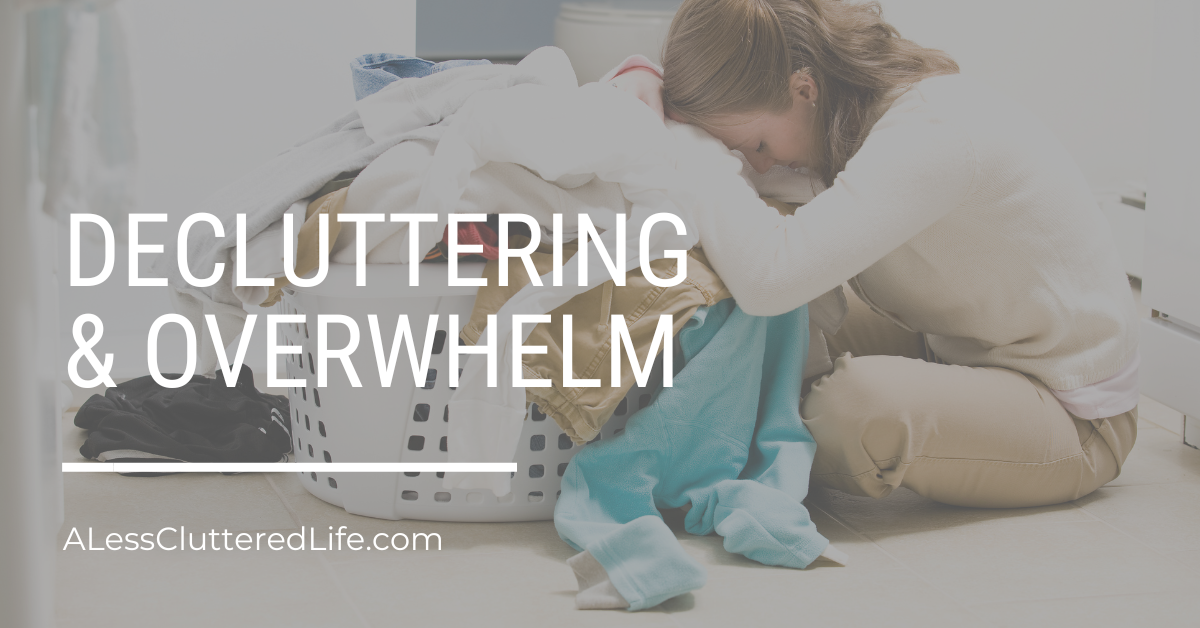
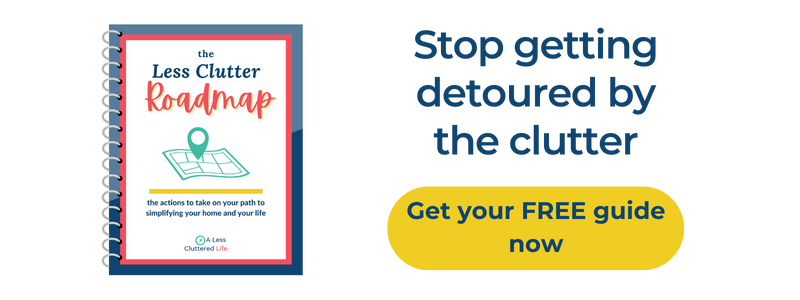
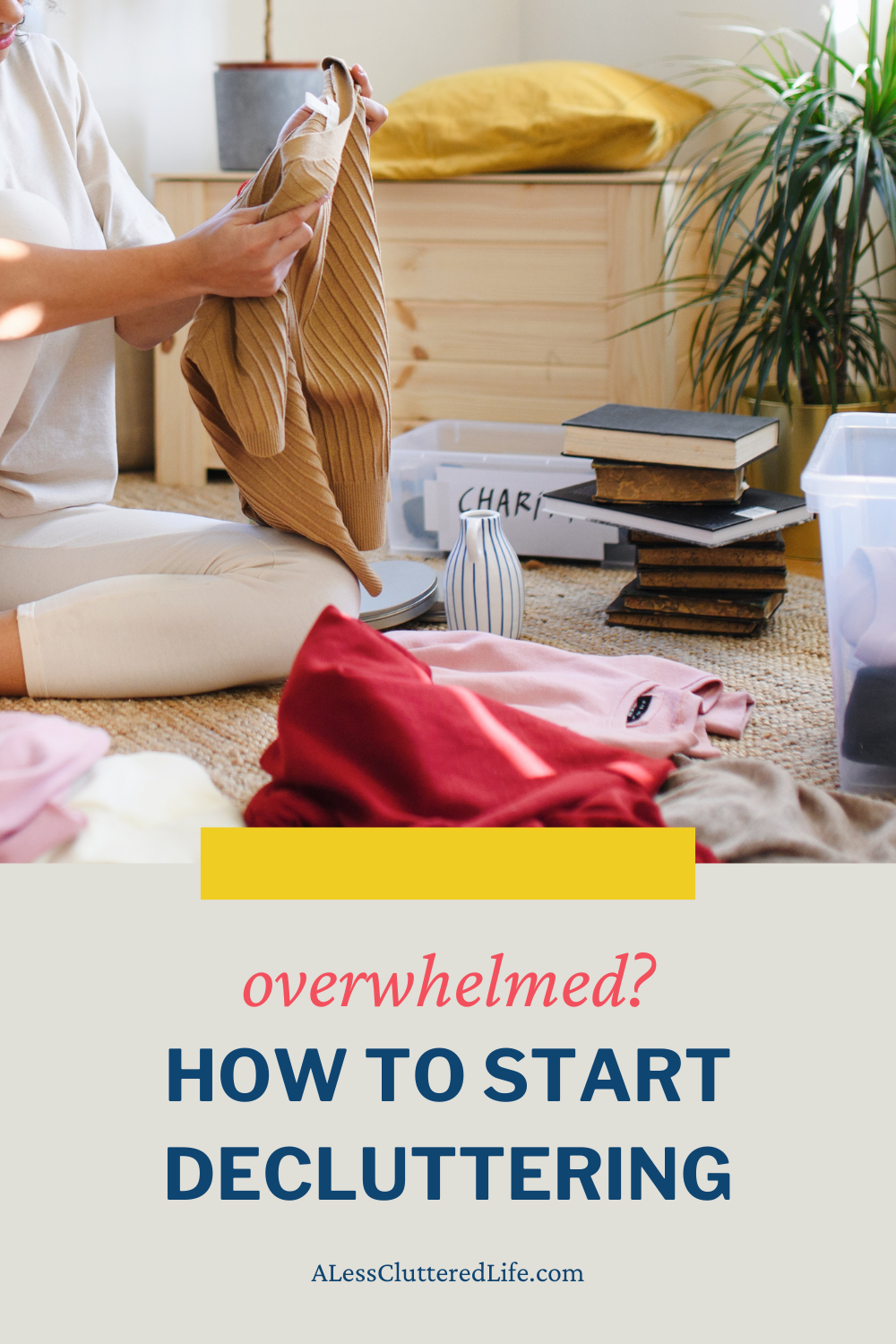
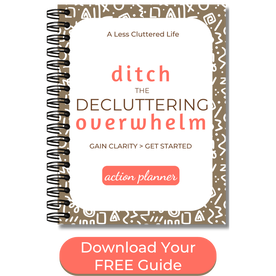

 RSS Feed
RSS Feed
